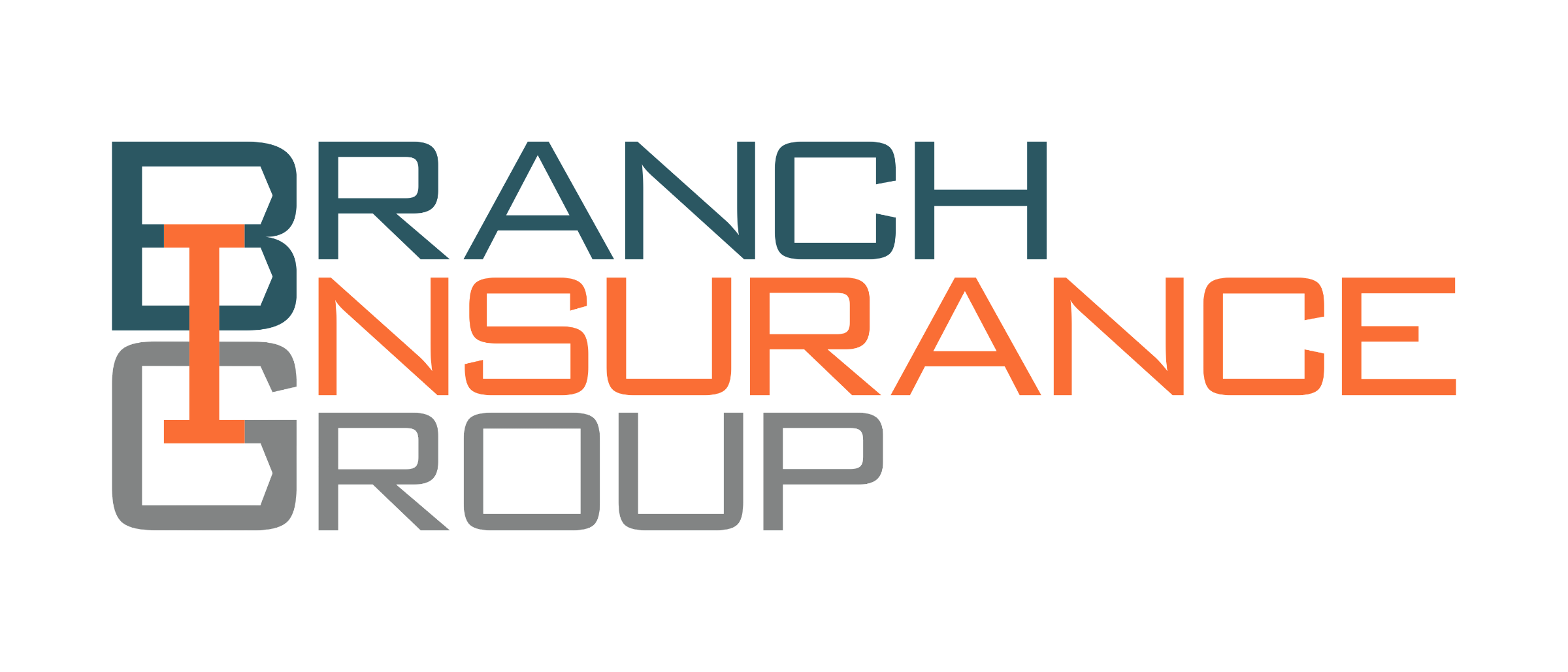Why Do You Need Life Insurance During a Recession?
In times of economic downturns, like during a recession, the unpredictability of life can feel overwhelming.
These types of situations are why we must take proactive steps to safeguard our financial security and protect our loved ones.
One powerful tool in our financial arsenal is a life insurance policy. Here at Branch Insurance Group, we’re going to delve into the importance of life insurance during a recession and look at how it can provide a safety net for you and your family when you need it the most.
Benefits of Life Insurance
Why life insurance? This policy can provide a much-needed sense of security and peace of mind in periods of uncertainty. While life insurance has been around for centuries, its significance has only grown in today’s unpredictable world.
It’s a financial instrument meant to support your beneficiaries during your passing. However, its benefits extend past standard death benefits. Life insurance can be pivotal in securing your family’s future, ensuring income replacement, managing debt, and protecting your estate.
The Impact of a Recession on Financial Stability
Before we dive into how life insurance can protect your loved ones during a recession, it’s crucial to understand the financial challenges of a recession. Recessions are characterized by a significant decline in economic activity, leading to widespread job losses, reduced income, and financial stress for many households.
During a recession, job security becomes a luxury for many, and individuals may grapple with the fear of unemployment or underemployment. As businesses struggle, layoffs become more common, and this insecurity can have a profound impact on families.
The Role of Life Insurance in Protecting Your Loved Ones
Now that we understand the financial turmoil of a recession, let’s explore how life insurance can be a beacon of hope during these difficult times.
Ensuring Income Replacement
The primary purpose of life insurance is to build a financial safety net for your loved ones in case of your passing. While this is its most common application, it’s also incredibly relevant when job security is shaky.
If you’re the primary breadwinner in your family, losing your income can be devastating. Life insurance can bridge the gap by providing financial support to your family when they need it most. It can also help pay for everyday expenses, like groceries, utility bills, and education so that your family’s quality of life is maintained even during tough economic times.
Debt Management and Mortgage Protection
Recessions often coincide with financial stress, and many individuals find themselves in a precarious position regarding debt, especially mortgage debt. Failure to make mortgage payments can result in the loss of your home, which is a nightmare scenario for anyone.
You can also use life insurance to pay off outstanding debts, including mortgages, so your family doesn’t have to worry about foreclosure. This financial security can offer assurance during turbulent economic times.
Estate Planning and Legacy Protection
Life insurance isn’t just about covering immediate expenses; it also plays a vital role in estate planning and legacy protection. During a recession, the value of your assets, investments, and properties may decrease, impacting the inheritance you leave behind.
Life insurance ensures your loved ones receive a substantial, tax-free payout, helping preserve your legacy and maintain their financial well-being.
Cost-Effective Coverage Options
You might be wondering if life insurance is an affordable option during a recession, especially when every cent counts. The good news is that there are many types of life insurance policies to choose from, and some are pretty cost-effective.
Two primary types of life insurance to consider are term life insurance and whole life insurance. Let’s take a closer look at these two to help you decide which may be right for your needs:
Term Life Insurance
Affordability: Term life insurance is often the go-to choice for individuals seeking cost-effective coverage during a recession. It’s designed to provide protection for a specific term, typically ranging from 10, 20, or 30 years.
Since it focuses solely on providing death benefits without the added complexities of cash value, term life insurance is generally more budget-friendly.
Specific Financial Goals: This type of insurance is an excellent option when you have specific financial goals in mind. For instance, if you want to ensure your family’s financial security until your children graduate from college or until your mortgage is paid off, term life insurance can be tailored to meet these needs.
The premiums tend to be more affordable, which is especially valuable when you need to allocate your resources wisely during a recession.
Whole Life Insurance
Comprehensive Coverage: Whole life insurance offers a more comprehensive and long-term approach to coverage. It not only provides death benefits but also includes an investment component that allows you to build cash value over time. While it may be more expensive than term life insurance, it offers a broader range of financial benefits.
Lifetime Coverage: One of the primary advantages of whole life insurance is that it provides coverage for your entire lifetime. This can be particularly valuable during a recession when financial stability is uncertain, as it ensures that your loved ones will receive a payout whenever the inevitable occurs.
Cash Value Accumulation: The cash value component of whole life insurance can be used for various financial needs. During a recession, this cash value can serve as an emergency fund or a source of funds for unforeseen expenses. It’s a valuable asset that can provide financial flexibility and security during turbulent economic times.
Which Option Is Right for You?
While both term and whole life insurance have their unique advantages, the choice between them largely depends on your specific financial circumstances and goals.
It’s important to work with a knowledgeable life insurance agent who can help you choose the right policy for your specific financial situation. They can tailor a plan that suits your budget and financial goals, making sure that you get the coverage you need without straining your finances.
The Importance of Early Planning
When it comes to life insurance, timing is critical. Financial planning experts recommend that you secure coverage before a recession hits. This is because life insurance premiums tend to be lower when you’re young and healthy.
By starting your policy early, you can take advantage of these lower premiums and save money in the long run. In addition to saving money, purchasing life insurance at a younger age also provides your beneficiaries with greater protection for a longer period.
This is because life insurance policies typically last for several decades, depending on the type of policy you choose. Starting early means that your beneficiaries will have coverage in place for a longer period, giving them more peace of mind.
A Real-Life Example of Life Insurance
Let’s take a look at a few examples of how individuals can benefit from life insurance during a recession through a life insurance case study.
Debbie and Gary, a couple with three young children, were working to grow their wealth through investments when they sought advice from a financial advisor. Despite the initial focus on wealth creation, their advisor saw gaps in their financial planning, particularly in personal insurance coverage.
Their advisor helped them choose a policy that provided comprehensive coverage, emphasizing the significance of having such protection, even when the probability of a claim seemed low. Tragically, shortly after securing their insurance policies, an unforeseen accident claimed Gary’s life and left Debbie critically injured.
With the guidance of their financial advisor, Debbie navigated the claims process during a challenging time. The family received over $2.2 million from insurance claims, ensuring their financial stability and enabling them to maintain their quality of life, as Gary had hoped for his family.
Debbie’s ongoing recovery, coupled with her children’s needs and financial goals, underscores the importance of consistent financial advice in managing their portfolio and investments. Without their improved personal insurance policies, Debbie and her children would have faced a far more precarious financial situation, including the risk of losing their home.
Now, try to imagine this scenario in a recession. Having your assets protected with a life insurance policy is crucial in any unexpected event. Still, Debbie and her family would have faced greater risks if their only financial planning was focused on wealth investments during a recession since many bonds and stocks typically take a hit in recessions.
Protect Your Family and Home with Life Insurance
Life insurance is not just there to secure your family’s future in the event of your passing; it’s also a powerful tool for protecting your loved ones during a recession. When economic stability is uncertain, life insurance can provide income replacement, debt management, and mortgage protection.
Don’t wait until the next economic downturn to act. Take the steps today to ensure your family’s financial security and peace of mind in times of uncertainty. Speak to a knowledgeable life insurance agent who can help you find the perfect policy to protect your loved ones during the ups and downs of life.
Branch Insurance Group can help your family with their financial well-being. Get a quote now for life insurance and see how our experienced agents can provide you with the right coverage.

